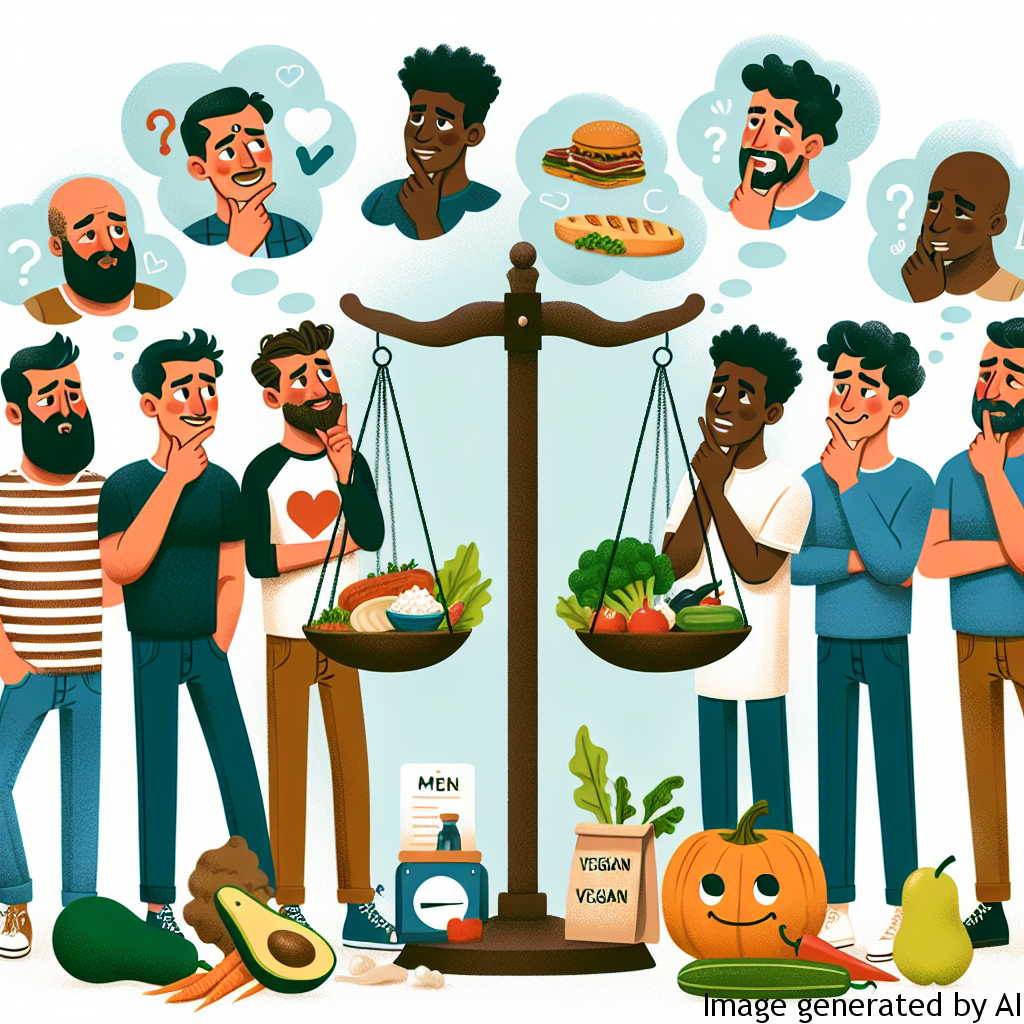Introduction
The concepts of vegetarianism and veganism are gaining more recognition and acceptance around the world due to the health and environmental benefits they offer. However, as men transition towards plant-based diets, it’s essential to consider not merely the health implications but also the psychological outcomes, particularly since traditional gender expectations may pose challenges. In this article, we endeavour to discuss the pros and cons of vegetarianism and veganism for men, while considering the context of gender expectations.
Gender Expectations and Their Influence on Men’s Psychological Health
Societal norms and expectations have long linked masculinity to certain behavioural traits, preferences, and choices. One of the major aspects affected by these expectations is diet. Men are typically associated with consuming meat, while vegetarianism or veganism is often stereotypically viewed as less masculine.
The “Meat Equals Manliness” Myth
The conventional notion that consuming meat equals manliness can put a psychological burden on men who prefer a vegetarian or vegan lifestyle. They may feel the need to justify their dietary choices or struggle with feeling less masculine due to these ingrained stereotypes.
Psychological Stress
Such stereotypically gendered expectations can impose unnecessary psychological stress on men. They may feel judged, ostracized, or excluded, especially in social settings where their diet may be scrutinized or belittled. This can lead to distress, low self-esteem, and anxiety.
How Gender Roles Can Influence Men’s Lives
Living under the prescriptive norms concerning masculinity and diet can have real-life repercussions for men. Predominantly, it can affect their health behaviour, social interactions, and emotional wellbeing.
Health Behaviour
A man’s eating habits may be influenced by societal pressure to adhere to certain masculine ideals. As a result, they might prioritize these ideals over nutritional needs, which can lead to health risk behaviours like overeating, unhealthy food choices or a reluctance to try plant-based diets.
Social Interactions
Men may experience social tension or exclusion due to their plant-based diet in social settings like barbecues, parties or while dining out. This might lead to eating in isolation or masking their dietary choices to avoid criticism.
Emotional Wellbeing
If a man feels less masculine because of his diet, it could have detrimental effects on his emotional wellbeing. He may face feelings of insecurity, low self-worth or a fear of judgment from peers.
Tips to Improve Psychological Health Considering Gender Roles
It’s imperative to create a supportive environment that welcomes all forms of masculinity and diet choices. Here are few tips:
Challenge Stereotypes
Challenge and deconstruct harmful stereotypes associated with eating habits and masculinity. Encouraging conversation about dietary choices, their implications, and the validity of some of these norms is a step forward.
Seek Professional Help
Professional help from a psychologist or therapist can effectively help manage feelings of stress, anxiety or low self-worth, particularly if they’re related to diet and masculinity.
Create a Supportive Environment
Creating a supportive and inclusive cultural environment that respects all dietary preferences can significantly help men adhere to vegetarianism or veganism without feeling marginalized.
Conclusion
While vegetarianism and veganism have distinctive health benefits, adhering to these diets as a man can manifest challenges, primarily due to societal gender expectations. However, by promoting dialogue, challenging norms and stereotypes, and fostering an inclusive and supportive environment, we can ensure a positive transition towards vegetarianism and veganism for men without compromising their psychological wellbeing.

